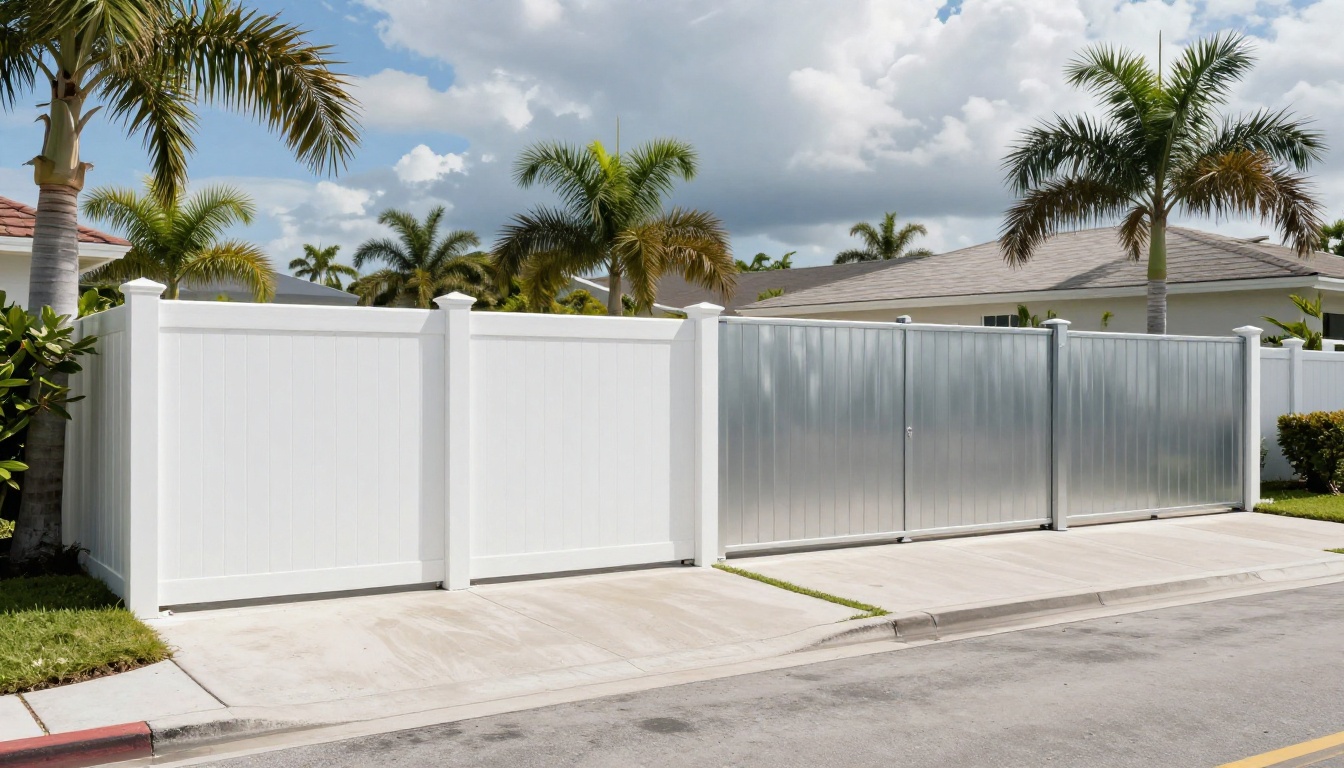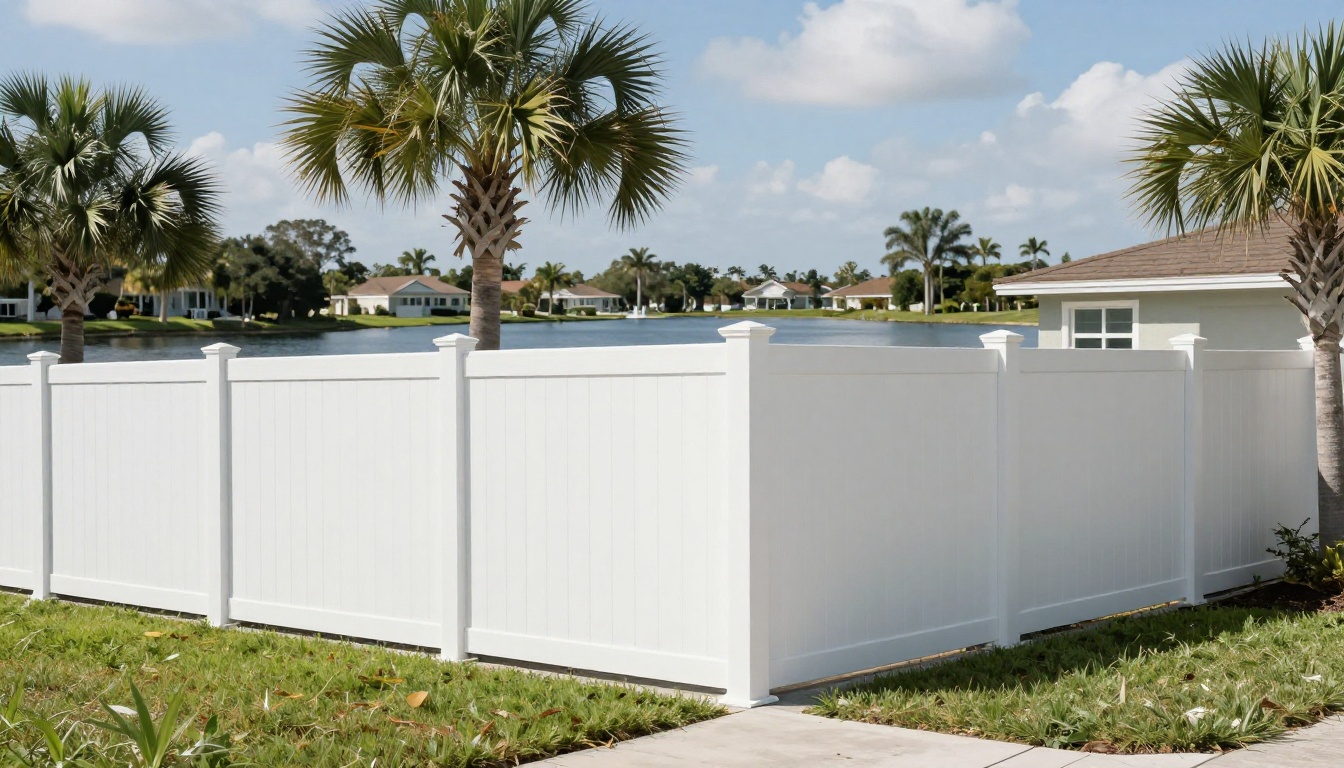August 29, 2025
Commercial Fencing Regulations and Options for Cape Coral Businesses
Understanding Commercial Fencing Permits in Cape Coral
Installing a commercial fence in Cape Coral requires obtaining the proper permits to ensure compliance with local regulations. These permits are mandatory for all businesses, regardless of the size or type of fencing being installed. The application process typically involves submitting detailed plans, including site layouts and specifications, either digitally through the city’s online portal or via paper submissions at the local building department. Digital submissions are often preferred due to their efficiency and faster processing times.
Business owners must be aware that failing to secure the necessary permits can result in fines or even the removal of improperly installed fences. The permitting process usually takes about two to four weeks, depending on the complexity of the project and whether any revisions are needed. By adhering to these requirements, businesses can avoid costly setbacks and ensure their fencing projects align with city standards. Now, let’s explore the zoning and height restrictions that further dictate commercial fence installations.
Key Zoning and Height Restrictions for Commercial Fences
Cape Coral has specific zoning codes that regulate where fences can be placed and how tall they can be. For example, front-facing fences often have a maximum height of four feet, while side and rear fences may extend up to six or eight feet, depending on the property’s location. These restrictions are designed to maintain visibility, ensure safety, and preserve neighborhood aesthetics. Recent updates to the zoning laws might also impose additional guidelines, so it’s crucial to verify the latest regulations before starting any project.
To avoid encroachment issues, business owners should confirm their property boundaries using a professional surveyor or city-provided maps. Encroaching on neighboring properties can lead to disputes and legal complications, making boundary verification an essential step. Understanding these zoning and height rules ensures that your fence not only meets legal requirements but also serves its intended purpose effectively. Next, we’ll dive into the application process for securing these permits.
Application Process for Commercial Fence Permits
The process of applying for a commercial fence permit in Cape Coral begins with gathering the required documentation. This includes a detailed site plan showing the proposed fence location, disclosure forms, and proof of ownership or authorization to make modifications on the property. Once these documents are ready, applicants can choose between submitting their application electronically through the city’s online system or in person at the building department. Electronic submissions are generally faster and allow for easier tracking of the application status.
After submission, the review process can take anywhere from two to four weeks, during which city officials will assess the application for compliance with zoning and safety standards. Fees for permits vary based on the scope of the project, and paying attention to these costs upfront can help avoid surprises later. To increase the chances of approval, double-check all submitted materials for accuracy and completeness before sending them in.
Tips for a successful submittal include consulting with a professional installer familiar with Cape Coral’s codes and ensuring that all required signatures and supporting documents are included. Addressing potential concerns early in the process can save time and reduce the likelihood of rejections. With the permit secured, the next step is understanding the inspection and approval procedures that follow installation.
Inspection, Approval, and Certificate of Compliance Steps
Once the commercial fence is installed, it must pass a city inspection to ensure it adheres to approved plans and complies with local regulations. Inspectors will evaluate factors such as fence height, placement, materials used, and overall structural integrity. If the fence passes inspection, the business owner will receive a Certificate of Compliance or Occupancy, which verifies that the installation meets all legal requirements.
To access and print the certificate, business owners can log into the city’s online portal or visit the building department in person. This document is important for maintaining records and proving compliance in case of future audits or disputes. Ensuring a smooth inspection process starts with following the approved plans closely and addressing any deficiencies promptly. With the regulatory aspects covered, let’s now explore the various types of commercial fencing options available in Cape Coral.
Types of Commercial Fencing Options in Cape Coral
Businesses in Cape Coral have several commercial fencing materials to choose from, each offering unique benefits. Chain link fences are cost-effective and durable, making them ideal for warehouses or industrial sites prioritizing security over aesthetics. Vinyl fences provide a sleek, low-maintenance option suitable for businesses seeking a polished look without frequent upkeep. Aluminum and wrought iron fences offer elegance and strength, perfect for establishments aiming to enhance curb appeal.
Cost factors vary significantly depending on the material, design complexity, and installation labor. For instance, chain link fences are typically the most affordable, while custom-designed aluminum or iron fences can be more expensive but add long-term value. Matching the fence type to the business’s needs—whether it’s security, privacy, or visual appeal—is key to achieving both functionality and satisfaction. Transitioning from material choices, let’s examine specialized fencing requirements for certain industries.
Additionally, some businesses may require fences tailored to specific operational demands, such as schools needing child-safe designs or retail spaces focusing on customer accessibility. Consulting with a professional installer can help identify the best solution for your unique situation. With material options clarified, our focus shifts to regulations surrounding specialized fencing applications like pools and high-security areas.
Regulations for Pool, Security, and Specialized Commercial Fences
Fencing around commercial pools must comply with strict safety codes to prevent accidents and ensure accessibility. These regulations often mandate non-climbable designs, self-closing gates, and minimum height requirements to protect users. Similarly, businesses operating in security-sensitive industries, such as banks or data centers, may need reinforced fences equipped with anti-climb features or surveillance integration to deter unauthorized access.
Specialized industries like schools and warehouses also face unique fencing requirements. Schools may need transparent fencing to monitor activity while maintaining visibility, whereas warehouses might prioritize heavy-duty materials capable of withstanding harsh conditions. Adhering to these industry-specific standards not only ensures safety but also avoids penalties for non-compliance. Understanding these specialized needs sets the stage for avoiding common pitfalls in commercial fencing projects.
Common Compliance Challenges and How to Avoid Them
One of the most frequent mistakes businesses make when installing commercial fences is miscalculating property lines, leading to encroachments that result in fines or forced removals. Another common issue is using incorrect materials that don’t meet city codes, which can delay inspections and approvals. To avoid these challenges, consult Cape Coral’s official ordinances or hire a professional installer who understands local regulations.
Proactive measures, such as conducting thorough research and seeking pre-approval consultations with city officials, can prevent costly errors. Additionally, keeping detailed records of permits, inspections, and communications with authorities ensures transparency and accountability throughout the project. By staying informed and vigilant, businesses can navigate the complexities of commercial fencing successfully. Maintenance and repair considerations are equally vital to sustaining compliance over time.
Maintenance and Repair Guidelines for Commercial Fences
Regular maintenance is essential to keep commercial fences in good condition and compliant with city requirements. This includes routine inspections for signs of wear, rust, or damage caused by weather or vandalism. Promptly addressing minor repairs , such as replacing broken panels or tightening loose posts, prevents larger issues from developing and extends the fence’s lifespan.
In cases of storm damage or vandalism, businesses should act quickly to restore the fence to its original state. Failure to do so could lead to citations for non-compliance. Local codes may specify acceptable repair methods or materials, so it’s wise to check these guidelines before proceeding. Proper maintenance not only preserves the fence’s appearance but also reinforces its functional role. However, there comes a point when replacement becomes the better option.
When to Replace vs. Repair a Commercial Fence in Cape Coral
Determining whether to repair or replace a commercial fence depends on several factors, including the extent of damage, age of the fence, and evolving regulatory standards. If the fence has sustained severe structural damage or is nearing the end of its usable life, full replacement is often the most practical choice. Legal triggers, such as updated zoning laws requiring taller or more secure fencing, can also necessitate upgrades.
On the other hand, minor issues like small dents or surface rust can typically be resolved through repairs. Regular assessments can help identify when a fence transitions from needing fixes to requiring complete replacement. Making this decision wisely balances cost-effectiveness with long-term durability and compliance. With replacement scenarios understood, selecting the right contractor becomes the next critical step.
Choosing the Right Fencing Contractor for Compliance and Quality
Selecting a reputable fencing contractor is crucial for ensuring both quality workmanship and adherence to Cape Coral’s regulations. Look for contractors who are licensed, insured, and experienced in handling commercial projects. A proven track record of successful installations and positive client feedback indicates reliability and expertise.
During the selection process, ask potential contractors about their familiarity with local codes and their approach to securing permits. Clear communication, transparent pricing, and a willingness to address questions or concerns are signs of a trustworthy partner. Working with the right contractor not only guarantees compliance but also results in a durable and attractive fence that enhances your business. Speaking of costs, let’s explore what to expect financially when undertaking a commercial fencing project.
Costs and Timeline Expectations for Commercial Fencing Projects
The cost of commercial fencing varies widely based on factors such as material type, fence length, and complexity of the design. Basic chain link fences may start at $10 per linear foot, while premium options like ornamental iron can exceed $30 per linear foot. Additional expenses, such as permit fees and compliance-related adjustments, should also be factored into the budget.
Realistic timelines for commercial fencing projects depend on the permitting process, which can take two to four weeks, and the actual installation, which might span several days to weeks depending on the scope. Planning ahead and accounting for potential delays ensures a smoother experience. With costs and timelines clarified, it’s important to stay informed about recent changes in fencing laws.
Recent Updates in Cape Coral Commercial Fencing Laws
Recently, Cape Coral introduced amendments to its commercial fencing regulations, including stricter height limits for certain zones and updated safety standards for pool enclosures. Business owners should regularly check the city’s official website or contact the building department for the latest updates to remain compliant. Staying informed about these changes helps avoid unnecessary complications during fence planning and installation.
Frequently Asked Questions: Commercial Fencing Regulations and Options for Cape Coral Businesses
Do all commercial fences need a permit in Cape Coral? Yes, all commercial fences require a permit to ensure compliance with local zoning and safety standards. Skipping this step can lead to fines or removal orders.
What are the maximum allowed fence heights for commercial properties? Maximum heights vary by location: front fences are typically limited to four feet, while side and rear fences can reach six to eight feet, depending on zoning rules.
How long does it take to get a commercial fence permit approved? The approval process usually takes two to four weeks, depending on the complexity of the application and whether revisions are needed.
Are there specific fencing requirements for businesses with pools? Yes, commercial pool fences must meet safety codes, including non-climbable designs, self-closing gates, and minimum height requirements to prevent accidents.
Can commercial fences be placed directly on the property line? While some fences can be placed on property lines, verifying boundaries with a surveyor is essential to avoid encroachment disputes and ensure compliance.
Conclusion
Navigating commercial fencing regulations in Cape Coral requires careful attention to detail and a commitment to compliance. From securing permits and adhering to zoning restrictions to choosing the right materials and contractors, each step plays a vital role in creating a safe, attractive, and legally sound fence. Understanding these regulations not only protects your business but also enhances its overall appearance and functionality.
To get started, consult Cape Coral’s local ordinances, reach out to reputable contractors , and begin the permit process early to avoid delays. Taking these proactive steps ensures your commercial fencing project meets all requirements and stands the test of time.


